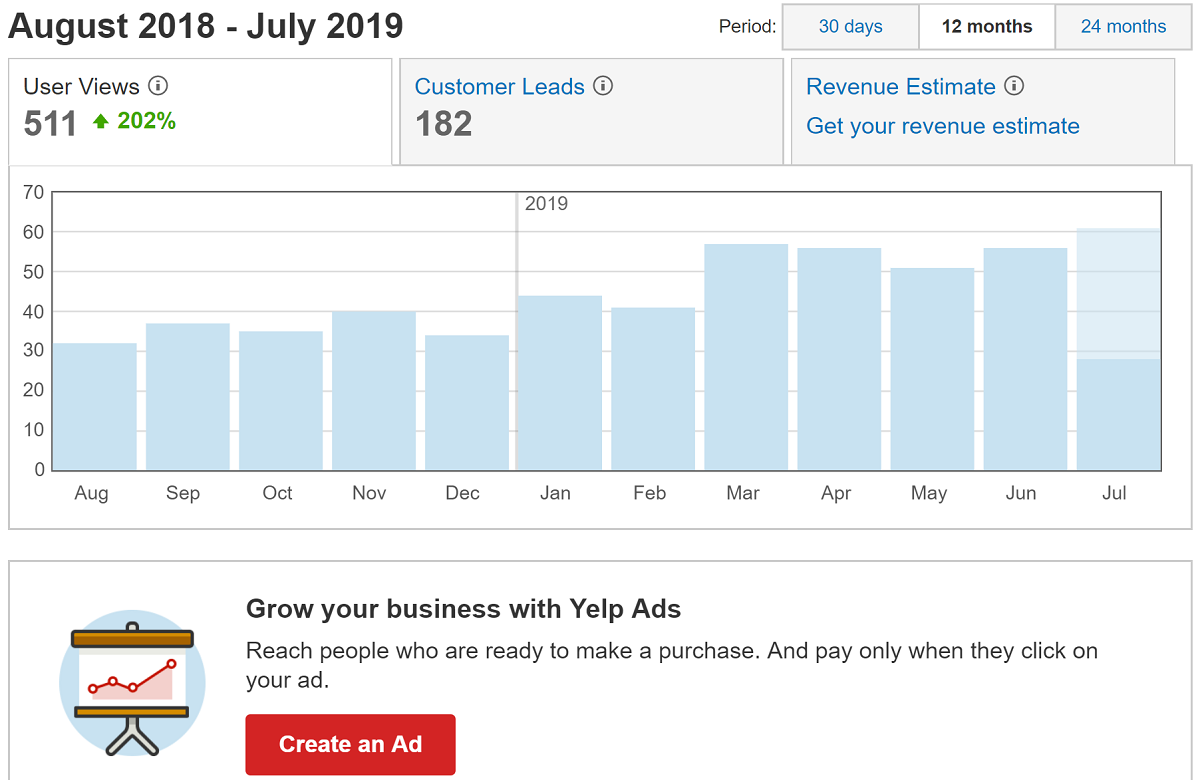

In my reading of their terms of service, this was a clear violation. One bad review with a very derogatory term used. He recalls another incident “I had a client 10 years ago that faced a similar problem with Yelp. All based on one phone call interaction.” “There was no way to challenge or take it away from its position at the top of the reviews. Bechor and his team got a one-star review,” Smith says. “I was working with California Skyline’s Yelp reviews. What if a review seems to go against Yelp’s terms of service, or does not seem to have any basis in reality? Isn’t the algorithm there to catch that sort of thing, he points out. The challenges for small businesses do not end there, Smith says. The stock has had a fairly steady performance over the past five years. There was a significant dip in share price in 2020, for obvious reasons during the height of COVID, but the stock is currently sitting just under $40 as of this writing. Stockholders, however, seem to be satisfied with Yelp’s business model. Search the term “Yelp extortion” and you’ll find an endless array of articles from a decade ago right up to the present.
And things do not seem to have changed much, Smith says. LA Times columnist David Lazarus brought this charge way back in 2014, and it is a major theme of the Billion Dollar Bully documentary. “Yelp and other companies are using their status as ‘user generated content’ platforms to absolve themselves of responsibility for bad behavior on the part of reviewers and business owners.”īeyond disagreements about reviews, there is that long history of concern about Yelp’s outright extortion. If you then go to claim your business listing, Smith says, you must first agree to the terms of service, with a major provision being massive barriers to suing Yelp.īut Yelp is in charge of interpreting another aspect of their terms of service and content guidelines, he adds. The challenge with Yelp starts with not having much of a choice: Businesses can and probably will be listed on Yelp with or without its permission. Yelp, however, disputes the accusations against it (see the company’s responses below). The basic critique made in the 2019 documentary is that Yelp in effect extorts small businesses for advertising fees in exchange for hiding bad reviews or otherwise manipulating what searchers see on the business Yelp page. It’s been two years since the film Billion Dollar Bully was released, and it seems like not much has changed at Yelp. “They either pay more money to push better reviews higher up on their Yelp business page, or they get hosed by negative reviews that may or may not have merit,” Bechor says. With more scrutiny coming to major tech companies in the past month (most notably, the whistleblower report on the Facebook suite of companies) might this dynamic change? Congress is putting pressure on big tech companies in an effort to stop them from hiding behind their algorithms, but small businesses that rely on their reputation feel the pressure of a “pay to play” no-win situation. For many business owners, the business model feels definitely skewed toward the “for worse” side of that equation, says Smith, who helps clients manage their online reputation, and finds Yelp among “the most problematic platforms to work with.” Yelp is a business advertising and review platform that seems by all accounts here to stay, for better or worse. “Yelp was more than happy to take his advertising dollars, but wouldn’t help Joe with a seemingly random review that he felt did not conform to Yelp’s terms of service,” says Joseph Smith, owner of 1REALTOUR.īechor is not alone. When Joe Bechor, CEO and founder of California Skyline Remodeling of Van Nuys, California, tried to work with Yelp to ethically manage his business profile and ad spend with Yelp, he ran up against a virtual brick wall.


 0 kommentar(er)
0 kommentar(er)
